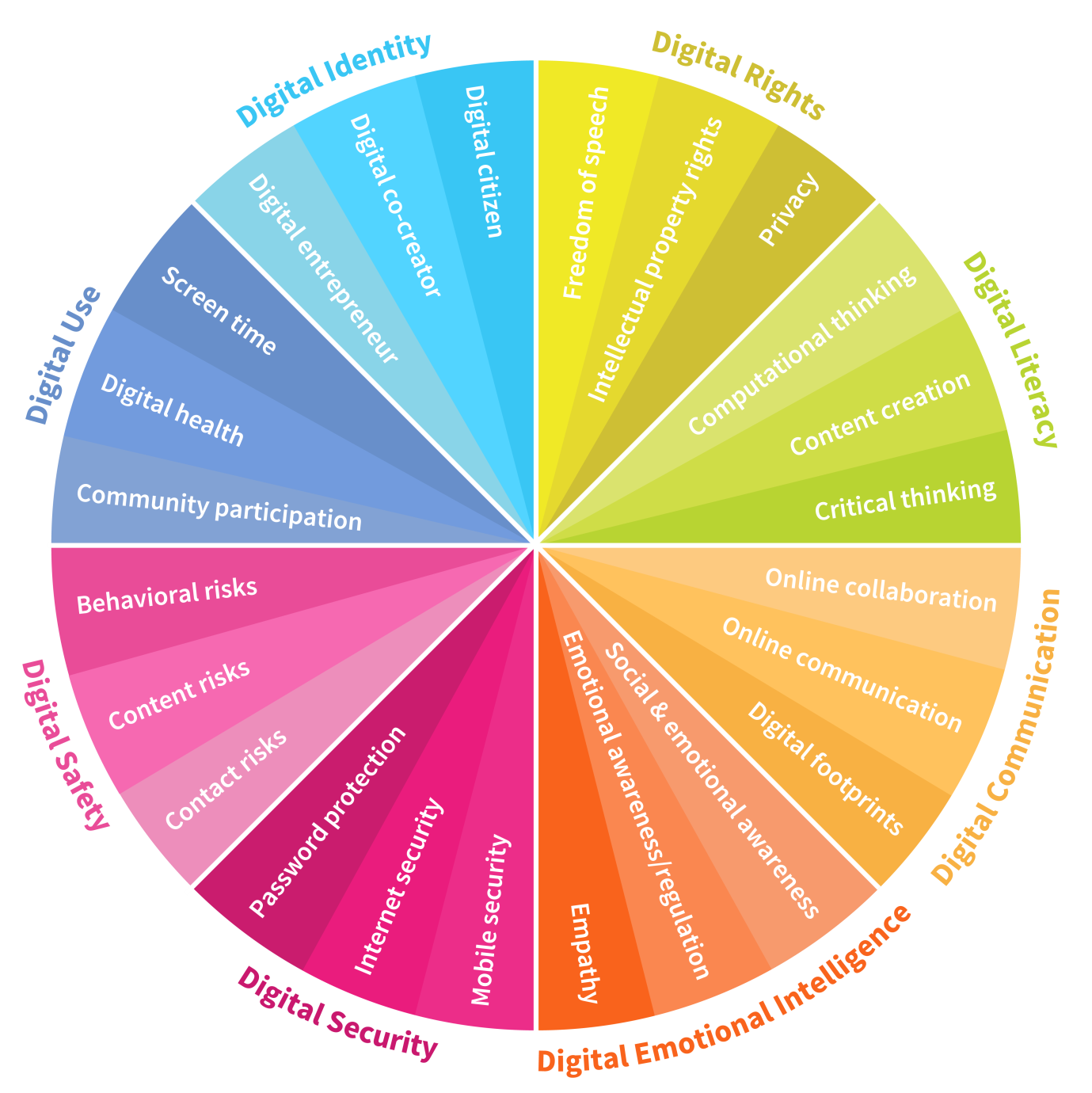Source : https://www.weforum.org/agenda/2016/06/8-digital-skills-we-must-teach-our-children?
The social and economic impact of technology is widespread and accelerating. The speed and volume of information have increased exponentially. Experts are predicting that 90% of the entire population will be connected to the internet within 10 years. With the internet of things, the digital and physical worlds will soon be merged. These changes herald exciting possibilities. But they also create uncertainty. And our kids are at the centre of this dynamic change.
Children are using digital technologies and media at increasingly younger ages and for longer periods of time. They spend an average of seven hours a day in front of screens – from televisions and computers, to mobile phones and various digital devices. This is more than the time children spend with their parents or in school. As such, it can have a significant impact on their health and well-being. What digital content they consume, who they meet online and how much time they spend onscreen – all these factors will greatly influence children’s overall development.
The digital world is a vast expanse of learning and entertainment. But it is in this digital world that kids are also exposed to many risks, such as cyberbullying, technology addiction, obscene and violent content, radicalization, scams and data theft. The problem lies in the fast and ever evolving nature of the digital world, where proper internet governance and policies for child protection are slow to catch up, rendering them ineffective.
Moreover, there is the digital age gap. The way children use technology is very different from adults. This gap makes it difficult for parents and educators to fully understand the risks and threats that children could face online. As a result, adults may feel unable to advise children on the safe and responsible use of digital technologies. Likewise, this gap gives rise to different perspectives of what is considered acceptable behaviour.
So how can we, as parents, educators and leaders, prepare our children for the digital age? Without a doubt, it is critical for us to equip them with digital intelligence.

Digital intelligence or “DQ” is the set of social, emotional and cognitive abilities that enable individuals to face the challenges and adapt to the demands of digital life. These abilities can broadly be broken down into eight interconnected areas:
Digital identity: The ability to create and manage one’s online identity and reputation. This includes an awareness of one’s online persona and management of the short-term and long-term impact of one’s online presence.
Digital use: The ability to use digital devices and media, including the mastery of control in order to achieve a healthy balance between life online and offline.
Digital safety: The ability to manage risks online (e.g. cyberbullying, grooming, radicalization) as well as problematic content (e.g. violence and obscenity), and to avoid and limit these risks.
Digital security: The ability to detect cyber threats (e.g. hacking, scams, malware), to understand best practices and to use suitable security tools for data protection.
Digital emotional intelligence: The ability to be empathetic and build good relationships with others online.
Digital communication: The ability to communicate and collaborate with others using digital technologies and media.
Digital literacy: The ability to find, evaluate, utilize, share and create content as well as competency in computational thinking.
Digital rights: The ability to understand and uphold personal and legal rights, including the rights to privacy, intellectual property, freedom of speech and protection from hate speech.
Above all, the acquisition of these abilities should be rooted in desirable human values such as respect, empathy and prudence. These values facilitate the wise and responsible use of technology – an attribute which will mark the future leaders of tomorrow. Indeed, cultivating digital intelligence grounded in human values is essential for our kids to become masters of technology instead of being mastered by it.